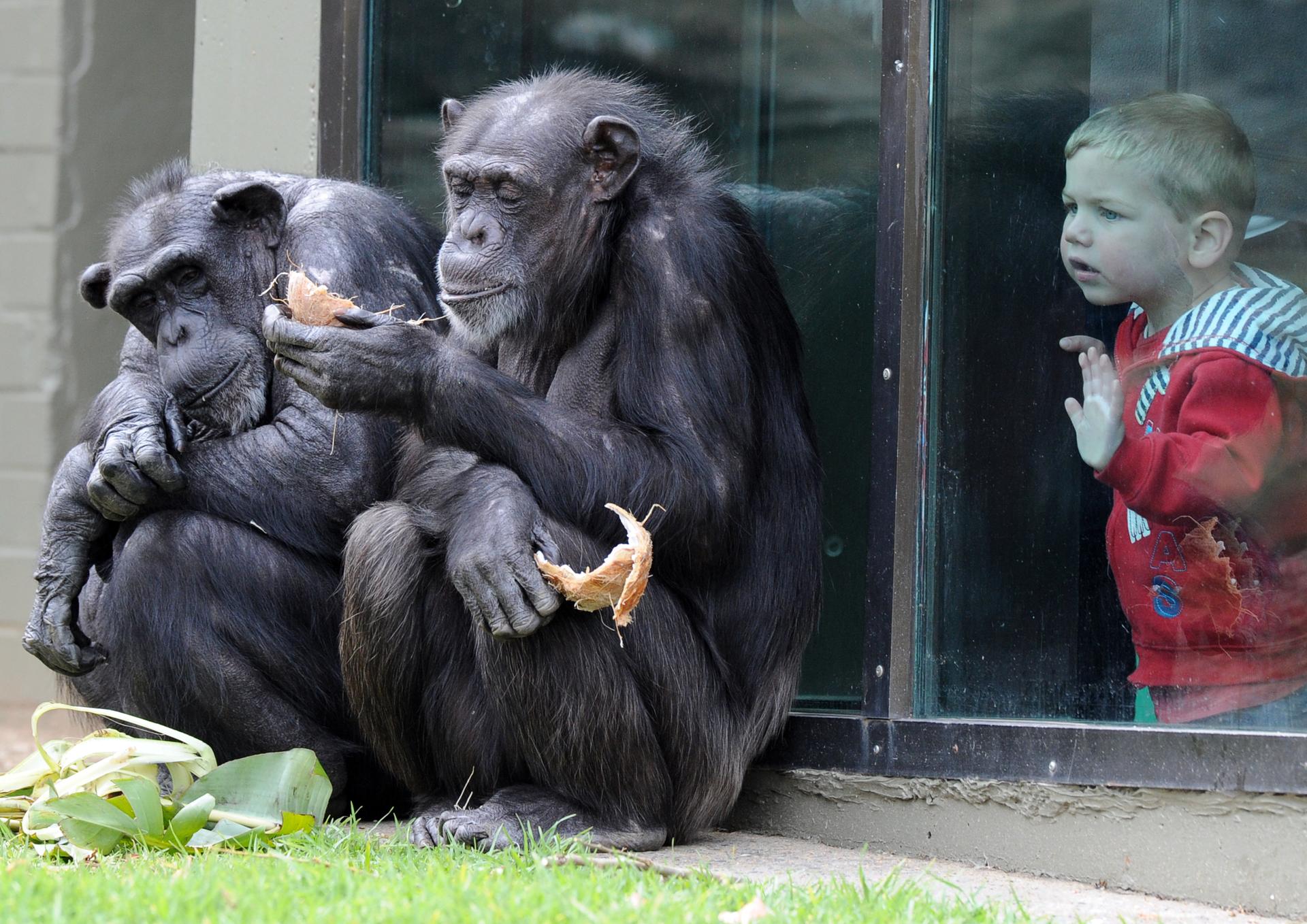Grandmothers responsible for human life span
A child watches chimpanzees sharing a coconut in their newly renovated habitat at Taronga Zoo in Sydney on September 30, 2011.
Ever wonder why we live so much longer than chimpanzees, our closest primate relative?
Apparently, the answer lies with your grandmother.
Researchers the University of Utah have found that grandmothers most likely helped us develop a whole series of social capacities that allow us to essentially be the humans we are today.
Kristen Hawkes, an anthropologist at the University of Utah, came up with the theory in 1997.
“One of the things that’s really different about us humans, compared to our closest living relatives, the other great apes, is that we have these really long lifespans," she said, Voice of America reported. "We reach adulthood later and then we have much longer adult lives. And an especially important thing about that is that women usually live through the childbearing years and are healthy and productive well beyond,” she said.
This isn't true of other great apes, she clarified. If females make it to adulthood, they usually die in their childbearing years. However what if these female chimps were able to live longer? Hawkes hypothesized that by caring for weaned children, "grandmas" could take the pressure of moms, who'd be able to have more offspring more frequently. Natural selection would then have favored longer lives, NBC News reported.
Hawkes conducted the experiment with mathematical biologist Peter Kim at the University of Sydney along with anthropologist James Coxworth. They found mathematical evidence for the hypothesis.
“This combination of grandmothering and increased longevity go together. When there’s grandmothering that makes more grandmothers. And it makes longevity increase from an apelike range into a humanlike range,” Hawkes said.
The story you just read is accessible and free to all because thousands of listeners and readers contribute to our nonprofit newsroom. We go deep to bring you the human-centered international reporting that you know you can trust. To do this work and to do it well, we rely on the support of our listeners. If you appreciated our coverage this year, if there was a story that made you pause or a song that moved you, would you consider making a gift to sustain our work through 2024 and beyond?
